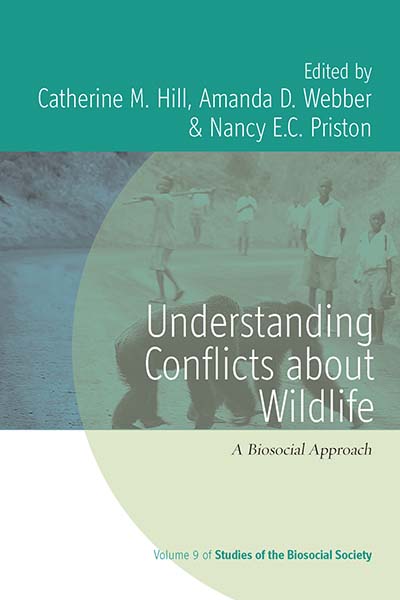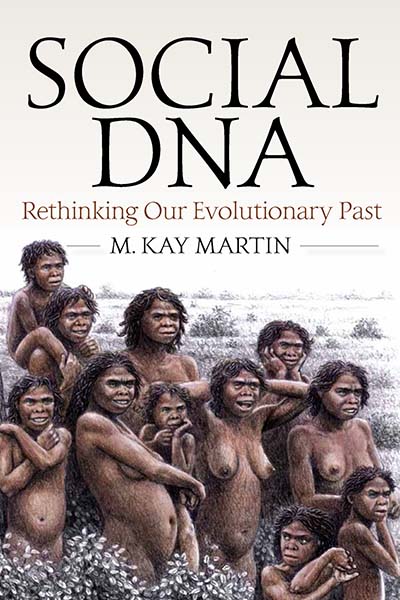
Series
Volume 9
Rethinking Biosocial Anthropology
See Related
Anthropology JournalsEmail Newsletters
Sign up for our email newsletters to get customized updates on new Berghahn publications.
Understanding Conflicts about Wildlife
A Biosocial Approach
Edited by Catherine M. Hill, Amanda D. Webber and Nancy E. C. Priston
228 pages, 18 illus., bibliog., index
ISBN 978-1-78533-462-7 $135.00/£104.00 / Hb / Published (May 2017)
ISBN 978-1-78920-820-7 $34.95/£27.95 / Pb / Published (February 2020)
eISBN 978-1-78533-463-4 eBook
Reviews
“All the chapters in this book have much to offer… I found this book to be inspiring and informative and a very welcome addition to the fascinating, complex and diverse ways people interact with wildlife.” • The Primate Eye
”This timely volume is a must read for students, academics, researchers, and conservation practitioners and wildlife managers. It not only aims to raise awareness of the human-human conflict dimensions that often underlie or aggravate people-wildlife co-existence, but provides readers with useful approaches in addressing these.” • Tatyana Humle, University of Kent
“This book is excellent and essential reading for anyone interested in human-wildlife coexistence, including researchers at all levels, conservation professionals, policy makers and funders. The editors and authors of this volume advocate convincingly for a radical change in measures taken to understand human-wildlife interactions, calling for a biosocial approach, and the integration of social and natural sciences.” • Joanna M. Setchell, Durham University
Description
Conflicts about wildlife are usually portrayed and understood as resulting from the negative impacts of wildlife on human livelihoods or property. However, a greater depth of analysis reveals that many instances of human-wildlife conflict are often better understood as people-people conflict, wherein there is a clash of values between different human groups. Understanding Conflicts About Wildlife unites academics and practitioners from across the globe to develop a holistic view of these interactions. It considers the political and social dimensions of ‘human-wildlife conflicts’ alongside effective methodological approaches, and will be of value to academics, conservationists and policy makers.
Catherine M. Hill is Professor of Anthropology in the Department of Social Sciences, Oxford Brookes University. Her main areas of research are people-wildlife interactions and conservation and local communities. Prior to her current appointment she was a lecturer in Biological Anthropology in the Department of Anthropology, University of Durham (1994-2000) and the Demonstrator in Human Ecology, Institute of Biological Anthropology, Oxford University (1991-1993).
Amanda D. Webber is a Lecturer in Conservation Science at Bristol Zoological Society. She is also an Honorary Research Associate at Oxford Brookes University. Her research focuses on human-wildlife interactions and she is interested in people’s perceptions of wildlife (particularly urban or ‘pest’ species) and the development of co-existence strategies.
Nancy E. C. Priston is an Honorary Research Associate at Oxford Brookes University. Her research examines human-wildlife conflict with a predominantly interdisciplinary approach, incorporating both the perspectives of wildlife and local people.


